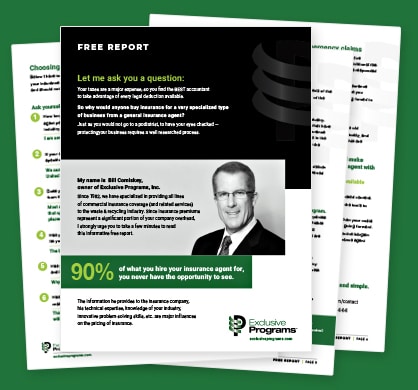Maintaining environmental sustainability and public health depends heavily on the waste management industry. But there are risks and difficulties in this industry as well. Waste management organizations’ operations, reputation, and financial stability are frequently exposed to many risks.
Therefore, the profitability and longevity of your company depend on your ability to identify these waste management risks and employ adequate risk mitigation techniques.
Common Waste Management Risks
Waste management organizations frequently face the following risks:
Environmental Compliance:
Waste management companies are subject to strict environmental rules. Heavy fines and legal action may be imposed for breaking these regulations. Inadequate record-keeping, improper management of hazardous waste, and improper disposal techniques can all result in regulatory violations.
Health and Safety:
Heavy machinery, hard labor, and exposure to potentially toxic contaminants are all part of the waste management industry. Accidents and injuries can endanger workers’ compensation claims and sometimes even trigger legal action.
Operational Disruptions:
Equipment failures, natural calamities, or labor strikes can all cause delays in the collection and disposal of waste. These setbacks hurt business productivity and lower consumer satisfaction and confidence.
Additionally, mismanagement or carelessness in waste disposal can damage a company’s reputation in this era of increased environmental consciousness. Customer attrition and lost business prospects can result from bad press and public protests.
Workplace Safety Strategies for Waste Management to Mitigate Risks
Waste management businesses can take the following measures to reduce these waste management risks:
Regulatory Compliance:
Create a thorough program for regulatory compliance that includes ongoing audits, employee training, and a dedicated compliance officer. It is crucial to stay updated with changing rules to prevent legal ramifications.
Safety Protocols:
Prioritize employee safety by implementing thorough training programs, ensuring that protective equipment is worn appropriately, and doing regular maintenance. Promoting workplace safety in waste management lowers the likelihood of accidents and possible legal action.
Business Continuity Planning:
To handle operational disturbances, create backup plans—keeping backup equipment in operation, having alternate disposal alternatives, and setting up communication procedures to keep clients updated during disruptions.
Proactively manage your company’s reputation by supporting environmentally friendly practices and commitment to responsible waste management.
Your Partner in Risk Mitigation
Waste management companies must employ proactive risk mitigation strategies to ensure compliance, safety, continuity, and reputation protection. Failure to do this may negatively impact a company’s operations, finances, and name. Luckily, you can successfully traverse these challenges by enlisting the support of Exclusive Programs’ expert guidance.
Exclusive Programs is thoroughly aware of the complexities of the waste management industry and offers specialized solutions to reduce potential liabilities and strengthen risk management initiatives. Contact us right away to take the first step toward efficient risk management in the waste management industry.

